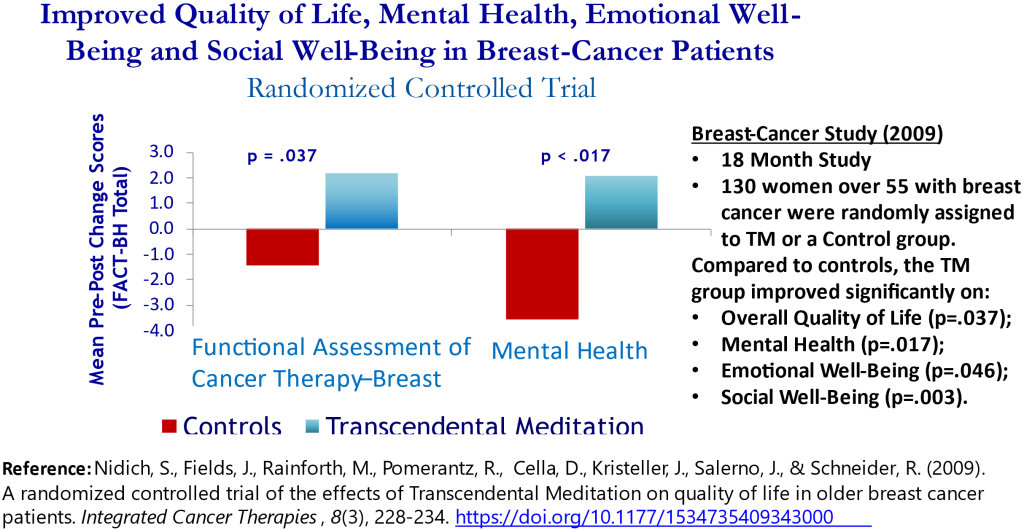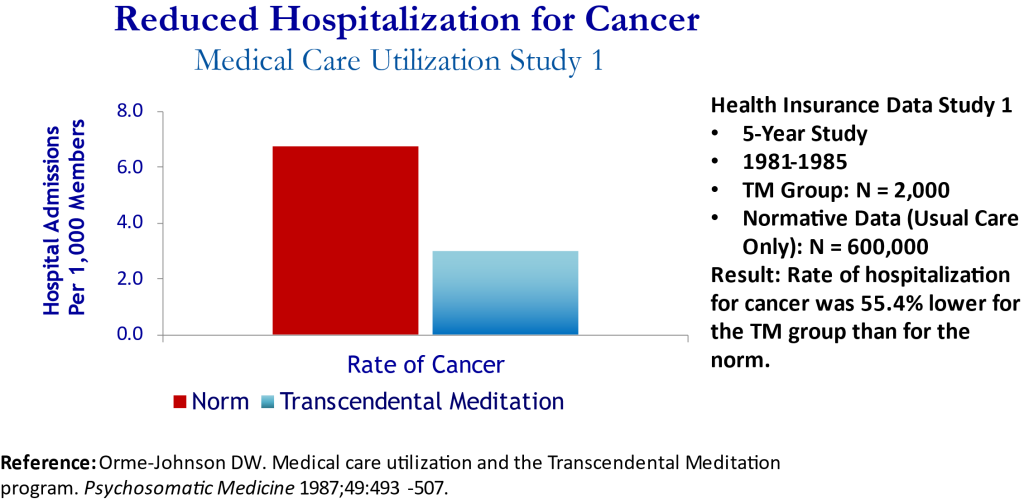Research on Transcendental Meditation and Breast Cancer

Breast cancer is the most frequent form of cancer in women but also the most survived form. The incidence of breast cancer is almost four times higher in women over the age of 50.
With the goal of attacking the harrowing effects that this disease creates in all aspects of their lives, women often seek complementary and alternative approaches that improve their quality of life.
A study published in Integrative Cancer Therapies in 2009 concluded that the practice of the Transcendental Meditation technique improves the quality of life in breast cancer patients.
The study was conducted at St. Joseph’s Hospital in Chicago and was supported in part by a grant awarded by the National Center for Complementary and Alternative Medicine. In this research, 130 breast cancer patients were randomly assigned to either the Transcendental Meditation (TM) or education control (EC) group. Measures were administered every six months over an average 18-month intervention period.
Significant improvements were found in the Transcendental Meditation group compared with controls in overall quality of life—especially in emotional well-being, social well-being, and mental health. Only 72% of the women in the study did the TM technique regularly once daily. Because the TM technique should be done for 20 minutes twice daily for maximum benefits, one can surmise that the benefits can be even greater than what was found in this study.
According to the research paper, control group patients received basic literature on breast cancer recommended by the National Cancer Institute and the American Cancer Society.
All participants in both the experimental and control groups continued their medical care prescribed by their physicians or oncologists.

An earlier, ground-breaking five-year study published in Psychosomatic Medicine in 1987, showed that hospitalization was 55.4 % lower for those practicing TM than for those who didn’t.
There are many potential causes of breast cancer. However, psychosocial stress is implicated as contributing to cancer onset, progression, and mortality. Notably, increased psychosocial stress is observed in women diagnosed with breast cancer, with sustained distress noted during cancer treatment and continuing for two years or more after surgery.
The Transcendental Meditation program is one of the most effective and widely researched modalities for reducing psychosocial stress, with research results that suggest reduced hospitalization for both benign and cancerous tumors, and reduced hospital admission rates for all cancers.

In light of the pervasive problem cancer patients have in maintaining a good quality of life, this stress-busting, effortless, and natural form of meditation—with its simple implementation and universal effectiveness—Is not only available everywhere for individuals but would be valuable in comprehensive care programs for both breast cancer patients and survivors.
Learn About the TM Course from a Certified Teacher
About the Author
Amy Ruff, RN BSN, is the education director and director of TM for Nurses nationally in the United States.





